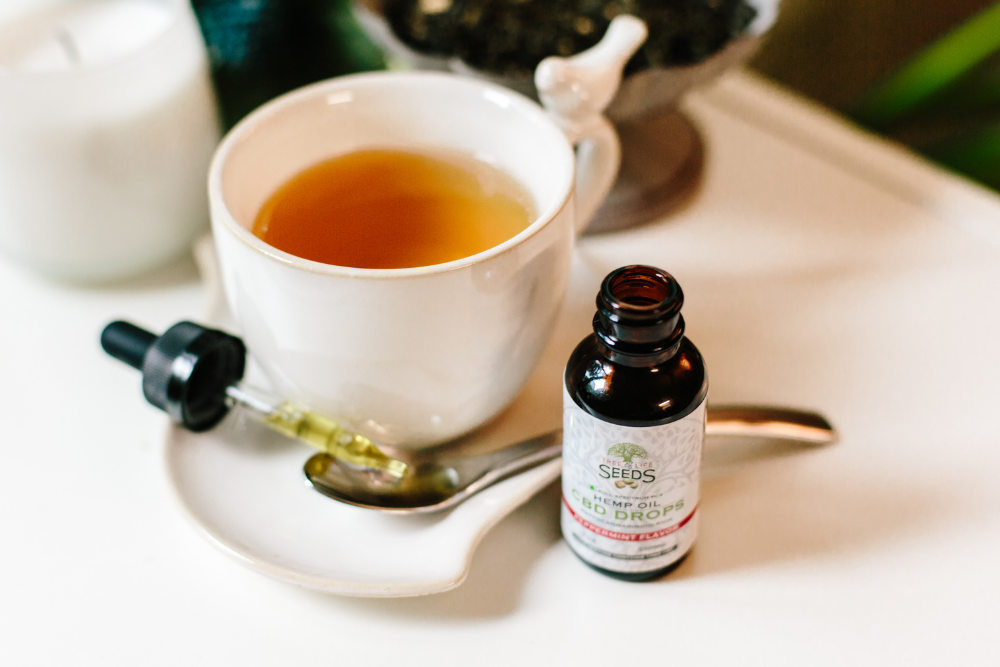More states throughout the country are legalizing cannabidiol (“CBD”), a chemical component of the cannabis plant used for medicinal and recreational purposes. You can find it in balms, supplements, drinks, and food.
A question regarding trademark has come up in the wake of these changing laws. Can producers and sellers of CBD products assert a bona fide intent to use a trademark in commerce? The snarl is that their goods are likely prohibited under federal law right now — but they may become lawful in the future.
According to the most recent ruling by the Trademark Trial and Appeal Board (TTAB), the answer is “no.” You can read the TTAB In re Joy Tea, Inc. opinion here.
How Bona Fide Intent in the Future Is Supposed to Work… and Why It Didn’t for Joy Tea
Trademark Act Section 1(b), 15 U.S.C. §1051(b) states: “A person who has a bona fide intention, under circumstances showing the good faith of such person to use a trademark in commerce” may apply for the registration of a trademark. The key here is that they must be engaging in lawful commerce.
In In re Joy Tea, Inc., the applicant filed an intent-to-use trademark application for the mark FOR JOY in Class 30 for:
- Tea
- Tea extracts
- Tea-based beverages
- Tea-based beverages also containing CBD
- Tea-based iced beverages
- Tea-based milk tea
- Barley tea
- Beverages made of tea
- Beverages with a tea base
- Black tea
- Buckwheat tea
- Chai tea
- Chamomile tea
- Chamomile-based beverages
- Citron tea
- Coffee and tea
- Earl Grey tea
- Fermented tea
- Fruit teas
- Ginger tea
- Ginseng tea
- Green tea
- Herb tea
- Herbal tea
- Herbal food beverages
- Iced tea
- Instant tea
- Jasmine tea
- Kombucha tea
- Lime tea
- Lime blossom tea
- Mixes for making tea
- Mixes in the nature of concentrates, syrups, or powders used in the preparation of tea based beverages
- Oolong tea
- Peppermint tea
- Red ginseng tea
- Roasted brown rice tea
- Rooibos tea
- Rose hip tea
- Rosemary tea
- Sparkling tea
- Syrups for making tea
- Tieguanyin tea
- White tea
- White lotus tea (Baengnyeoncha)
All of these mentioned are legal under both state and federal laws. They contain ingredients solely derived from hemp — with a delta-9 tetrahydrocannabinol (THC) concentration of not more than 0.3 percent on a dry weight basis.
However, CBD products are not in compliance with several sections of the Federal Food, Drug and Cosmetic Act (“FDCA”), simply because the products contain CBD. The FDCA currently prohibits “the introduction or delivery for introduction into interstate commerce of any food to which has been added… a drug or biological product for which substantial clinical investigations have been instituted and for which the existence of such investigations has been made public…”
The description of For Joy Tea’s goods in the trademark application included food to which CBD would be added. At the time that they filed their trademark application, CBD was the subject of substantial clinical investigations. Thus, the FDCA considered some of the goods illegal.
For Joy Tea was not using the trademark as a source identifier for these products at the time the application was filed. They did reason that, by the time they started using the trademark in commerce, CBD would be legal under all federal and state laws. But the TTAB stood by previous decisions: “…if the goods on which a mark is intended to be used are unlawful, there can be no bona fide intent to use the mark in lawful commerce.”
What can the producers and sellers of CBD products do for now? They will have to wait patiently for federal laws to change regarding the use of CBD in products.
In the meantime, For Joy Tea could file a new trademark application with a work-around: they could eliminate all of the products in the description that contain CBD. For the present, they could at least obtain a registration for the teas and beverages that are legal.
